Have you ever wondered what it’s like to visit Oman during Ramadan? While some travellers might hesitate and find it a challenging time to visit, those who are open to this experience discover festive evenings, life at a slower pace and unique cultural insights.
Having lived and worked several years during Ramadan in Oman, I’ll walk you through what to expect when visiting Oman during Ramadan. We’ll see how to respect local customs and how to make the most of your journey.
Understanding Ramadan
Ramadan—the sacred month of fasting and spiritual reflection—is a special time in Oman. Daily life slows down, but the evenings come alive with a sense of community and celebration.
Ramadan is the ninth month of the Islamic calendar and one of the holiest times for Muslims worldwide. People fast from dawn to sunset. The morning meal, which is called Suhur, must be eaten before the first call to prayer of the day (Fajr). In practice, many people stay up at least until 3.30 a.m and have this meal before having a few hours of sleep. The result is that everyone feels quite tired most of the time (except at weekends when people tend to sleep in!).

The fast is broken at the Maghrib call to prayer in the evening (around 6.15 pm in Muscat).
Ramadan is also a time for prayer, doing charity, and taking time to do self-reflection. In Oman, as in other Muslim countries, daily life slows down, and there is a strong emphasis on spirituality, family, and community.
Because the Islamic calendar follows a lunar cycle, Ramadan’s dates shift each year. In 2025, Ramadan in Oman started on the evening of Fri, Feb 28, 2025 and will finish on Sun, Mar 30, 2025.
What do I do as a foreigner living in Oman?
For me, the ‘rules’ during Ramadan are pretty simple, and honestly, they just feel like common courtesy.
- As a foreigner, I wouldn’t be fined but eating in public is forbidden and it would be considered very disrespectful.
- Dressing more conservatively is important. I already tend to stay covered up, so it isn’t a big change.
What can you expect as a Tourist in Oman During Ramadan?
Some of you may be wondering if it’s a good idea to travel to Oman during this period. It is, but it comes with some adjustments. You will find that in many ways it offers deeper cultural immersion.
Here’s what to keep in mind:
1. Fasting Hours and Food Availability
- Restaurants and cafés outside of hotels are closed during the day until sunset (around 6.15 pm in 2025).
- Supermarkets remain open, so you can buy food and eat in private.
- Hotel restaurants continue to serve non-Muslim guests, though some may have designated dining areas to respect those who are fasting.
2. Changes in Business Hours
- Government offices and banks operate on reduced hours, typically from 9 AM to 2 PM.
- Many shops and businesses open in the late afternoon or evening after Iftar (the meal that breaks the fast). It is also customary to have massive sales on during Ramadan.
- Tourist attractions generally remain open but may have shorter hours, so it’s wise to check in advance.
3. Respecting Local Customs
- Non-Muslims are not expected to fast, but eating, drinking, or smoking in public during daylight hours is considered disrespectful and is legally prohibited. This is important if you plan on doing day trips. If you plan on going to the beach for the day or visit places such as Wadi Shab and Bimmah Sinkhole, you will not be able to have a picnic or even eat in your car.
- Alcohol is not served in most places in Oman but during Ramadan, you will only be able to find it in some international hotels.
- Don’t play loud music during this period.
Experiencing Ramadan Traditions as a Visitor
If you decide to travel to Oman during Ramadan, it will make a difference to see it as an opportunity to witness and participate in some of Oman’s most cherished traditions.
1. Join an Iftar Meal
Iftar is the sunset meal that breaks the fast, and it is often a lavish affair. Many hotels and restaurants offer special Iftar buffets featuring Omani and Middle Eastern cuisine. If you’re lucky, you might be invited to share an Iftar meal with a local family—a true highlight of cultural travel.
See my blogpost on ’13 Do’s and don’ts of Eating in Oman.’
It is also always fun to see all the families come together at the beach to share Iftar. Picnic tables, chairs and lights all come out for these occasions.
2. Visit Sultan Qaboos Grand Mosque and other mosques
Mosques come alive at night with special Ramadan prayers known as Taraweeh. While non-Muslims cannot enter mosques like the Sultan Qaboos Grand Mosque during prayer times, simply witnessing the atmosphere around mosques in the evening is a beautiful experience.
3. Explore Ramadan Night Markets
As the sun sets, Omani cities and towns bustle with activity. Many souqs (markets) extend their hours, and you’ll find vendors selling dates, sweets, and festive decorations. The Mutrah Souq in Muscat is particularly vibrant in the evenings during Ramadan.
4. Try Traditional Ramadan Foods
Ramadan is a great time to try special foods that may not be as readily available at other times of the year. Some must-try dishes include:
- Harees – A comforting dish of wheat and meat, slow-cooked to perfection.
- Shuwa – A spiced lamb dish cooked underground for up to 48 hours.
- Luqaimat – Sweet dumplings drizzled with date syrup.
- Sambusa – A Middle Eastern take on samosas, filled with meat, vegetables, or cheese.
5. Enjoy the Festive Atmosphere
While days are quiet, the nights are full of life. Parks, promenades, and public spaces fill with families and friends gathering to socialize. The Corniche in Muscat, for example, is a great spot to soak in the ambiance.
The streets are often decorated with lights, moon crescents, and stars.
Practical Tips for Visiting Oman During Ramadan
To ensure a smooth and respectful visit during Ramadan, here are some essential travel tips:
- Plan around business hours: Since many places close during the afternoon, structure your day accordingly. Sightseeing in the morning and evening is best.
- Stay hydrated: While you should avoid drinking water in public, carry a bottle in your bag and drink discreetly in private spaces.
- Book accommodations with dining options: If you’re not fasting, staying in a hotel that serves meals throughout the day will make things easier.
- Be patient: Things move at a slower pace during Ramadan, and people may be more tired due to fasting. Embrace the relaxed atmosphere and go with the flow.
What should you wear during Ramadan in Oman?
During Ramadan, dressing modestly is especially important as a sign of cultural respect.
While Oman generally has a conservative dress code, Ramadan calls for even more mindfulness in clothing choices.
Both men and women should opt for loose-fitting, non-revealing attire. For women, this means long skirts or trousers and tops with sleeves that cover the shoulders and upper arms. While a headscarf is not required for non-Muslim women, carrying one can be useful when visiting religious or traditional areas.
Men should wear long trousers and avoid sleeveless shirts. Light, breathable fabrics like cotton or linen are ideal for staying comfortable in the warm weather. Adhering to these guidelines not only shows respect for local customs but also enhances your experience by fostering positive interactions with the community.
Oman during Ramadan is a time of reflection, generosity, and communal spirit. If you travel with an open mind and a willingness to adapt, you’ll gain insights into the heart of Omani culture that few travellers get to experience. From sharing an Iftar meal to exploring the vibrant souqs at night, Ramadan offers a travel experience that is both unique and unforgettable.
Would you visit Oman during Ramadan? Or have you already visited Oman during Ramadan?Share your thoughts and experiences in the comments below!
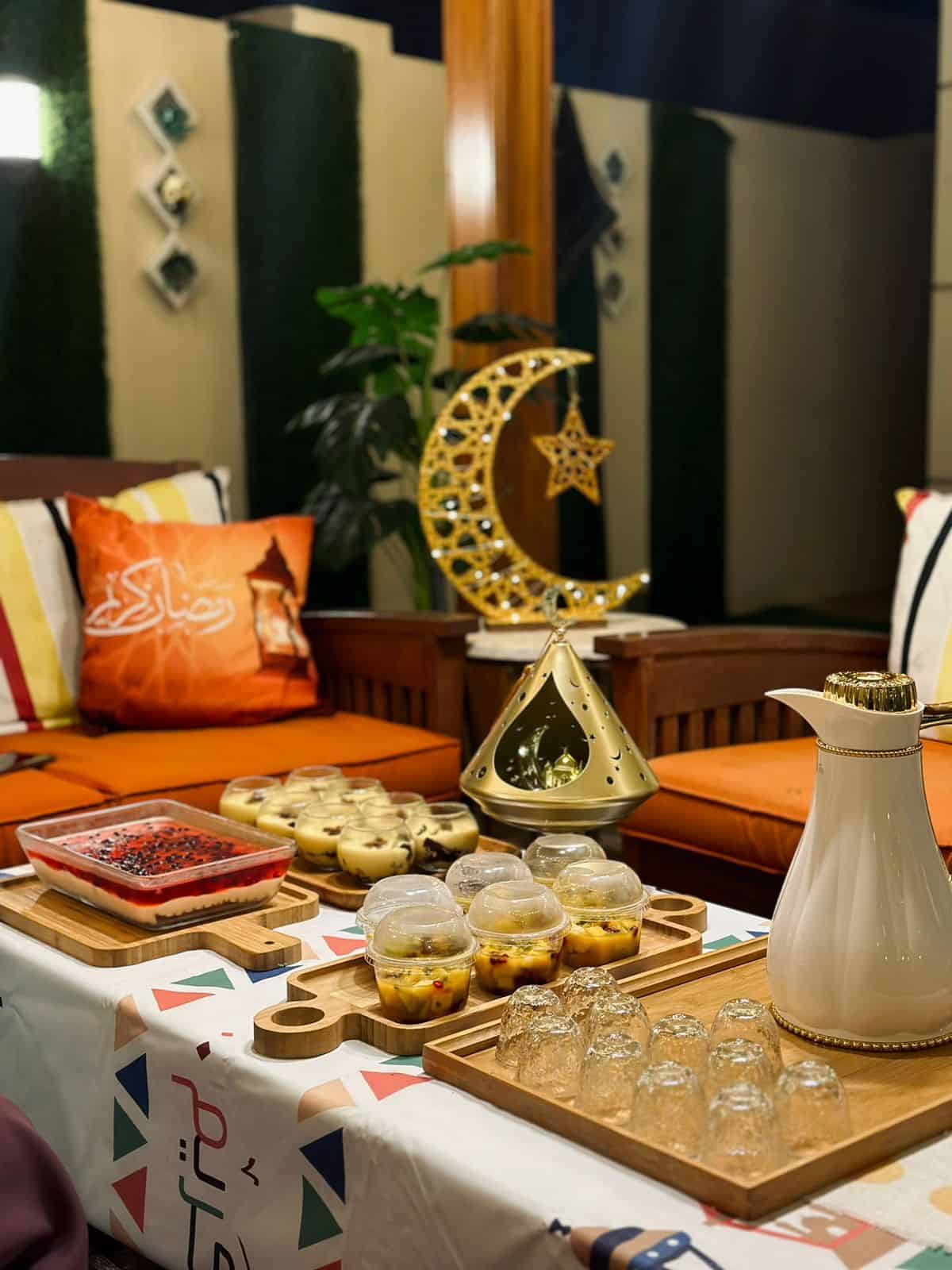
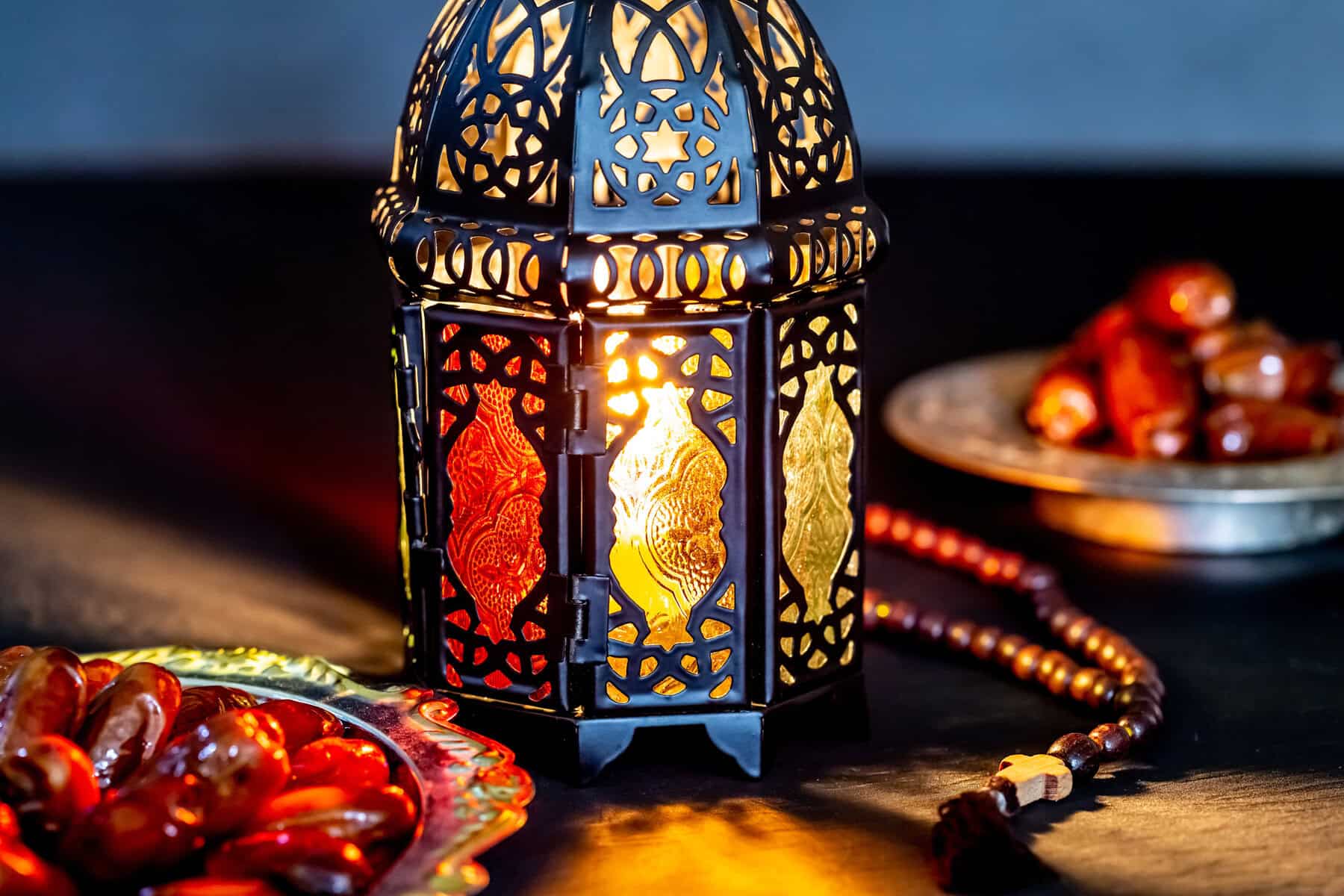
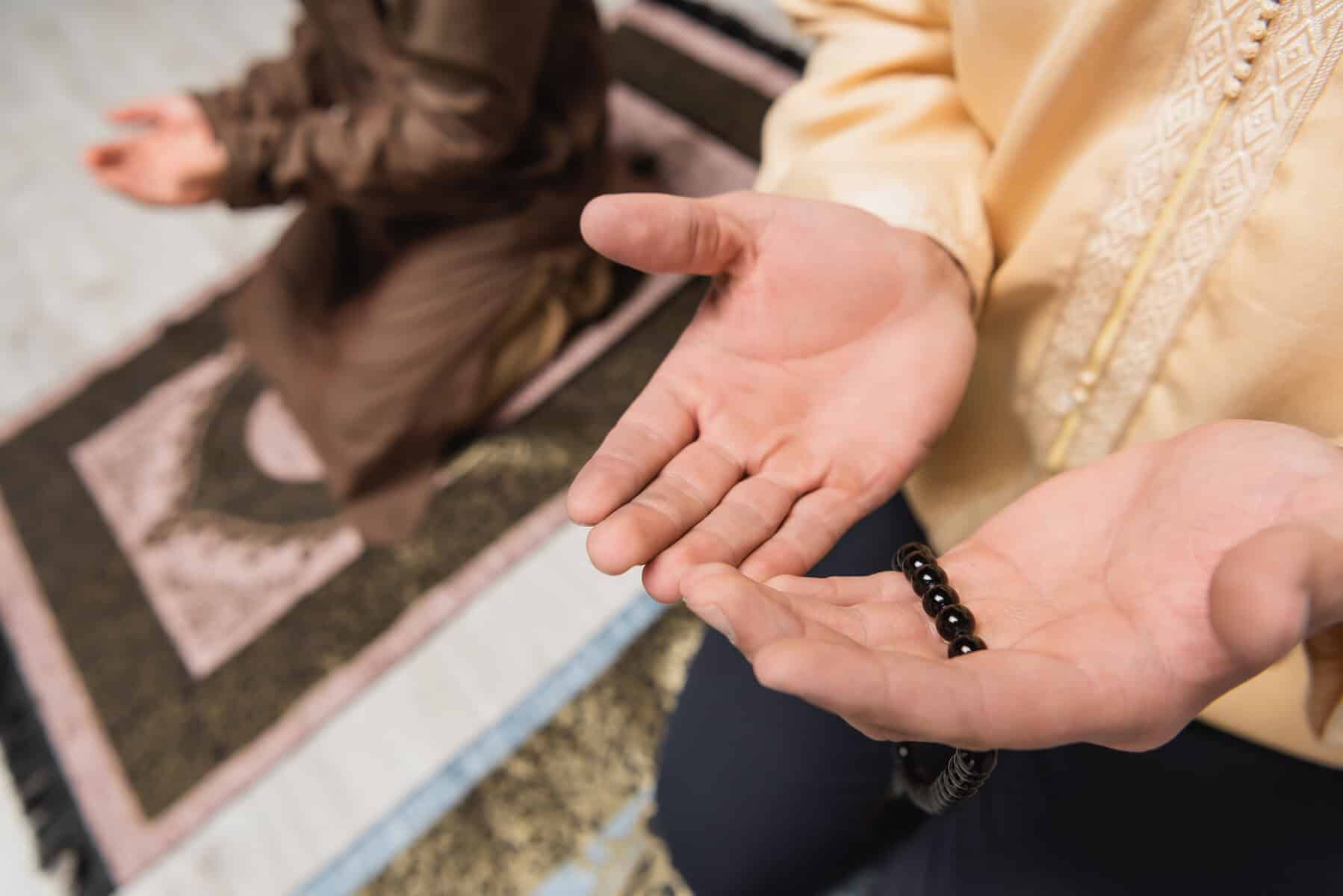

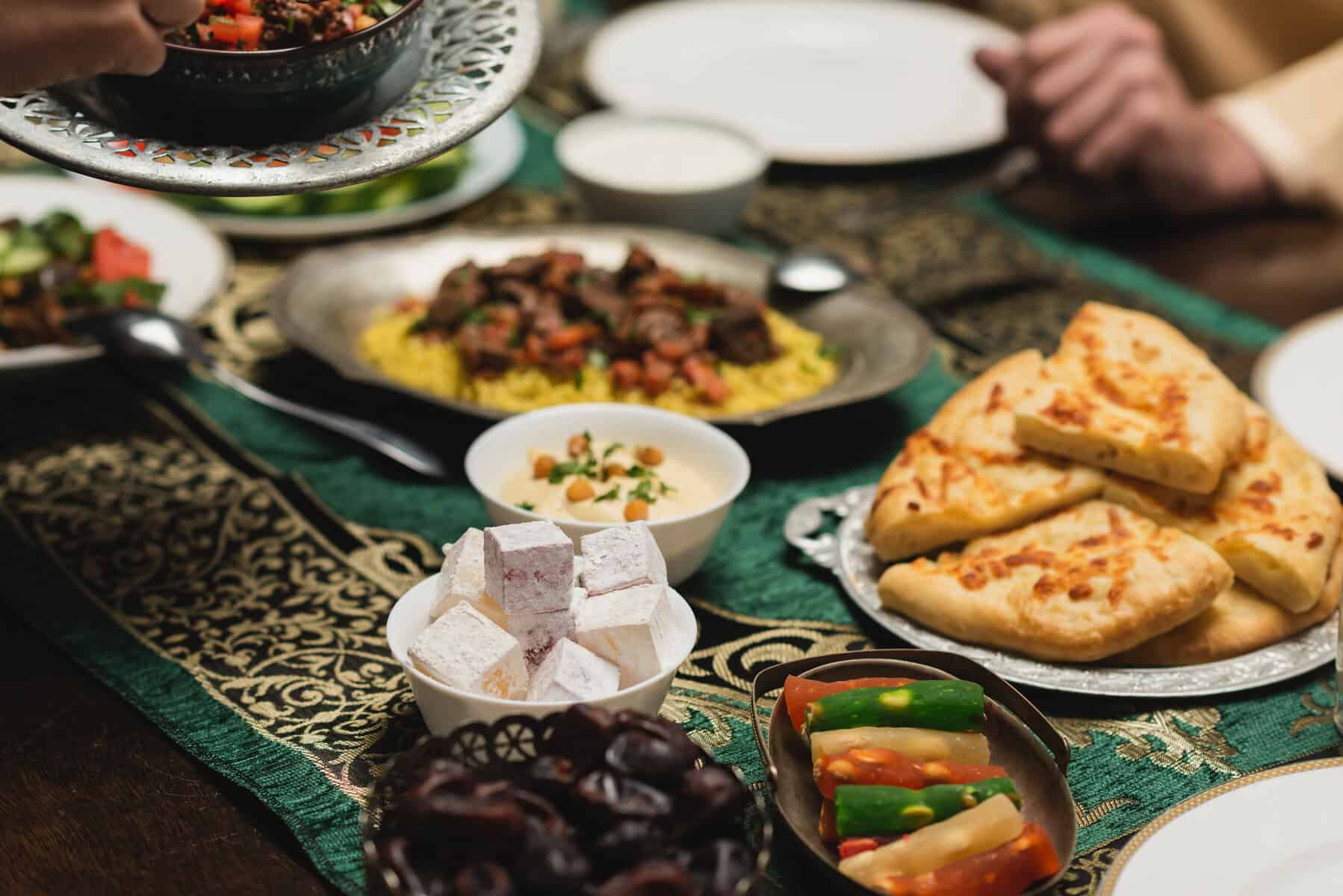
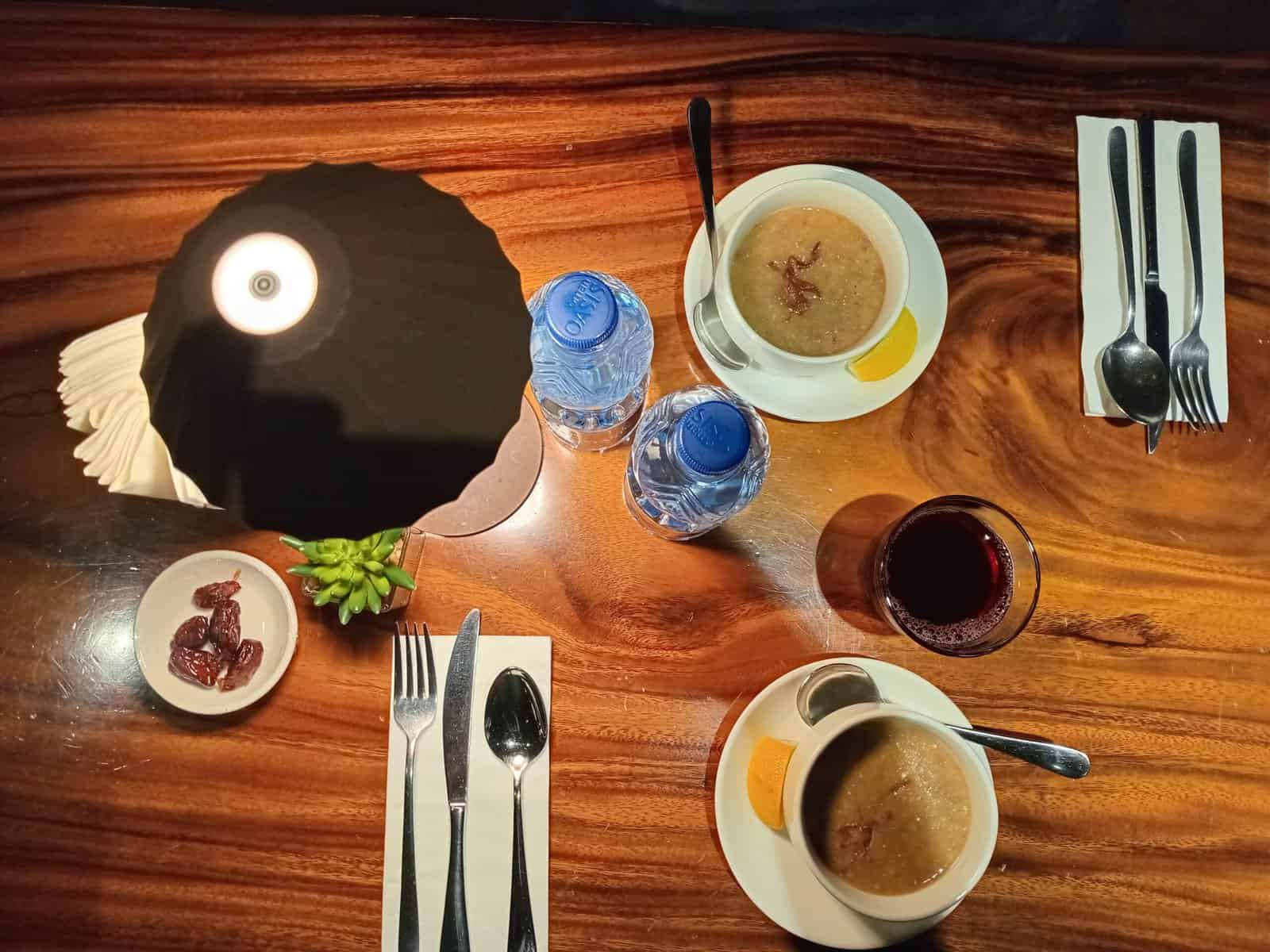

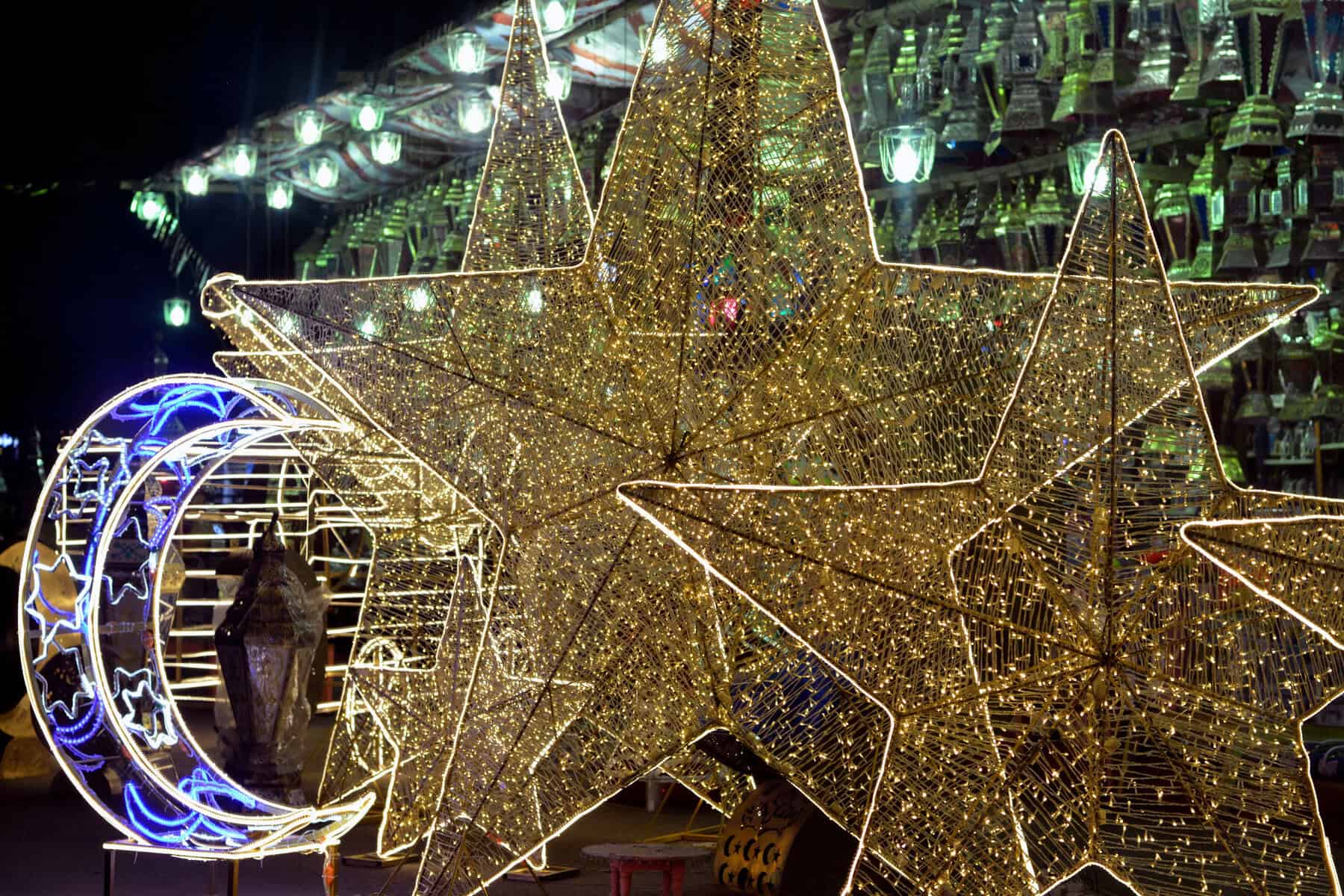
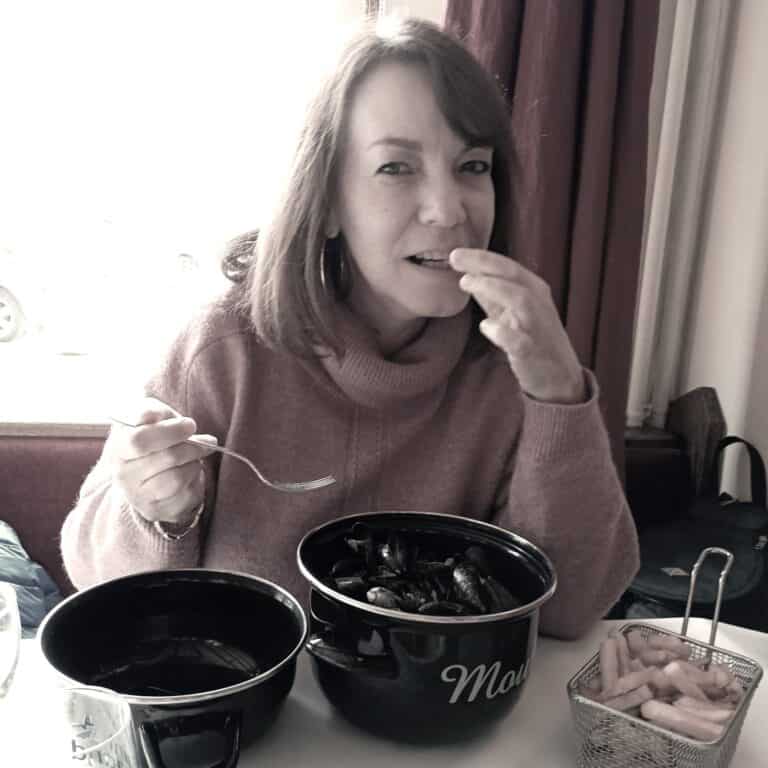
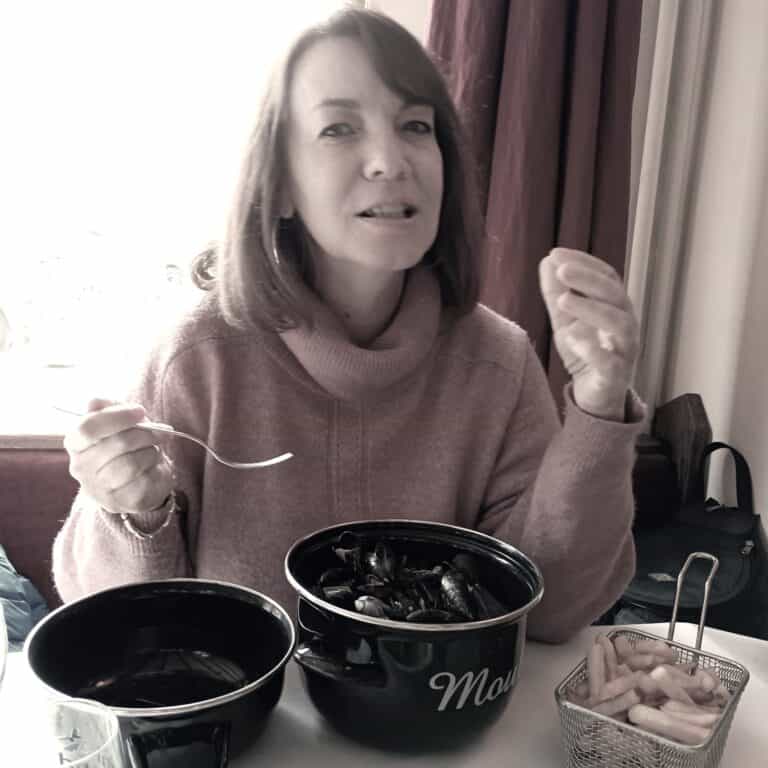

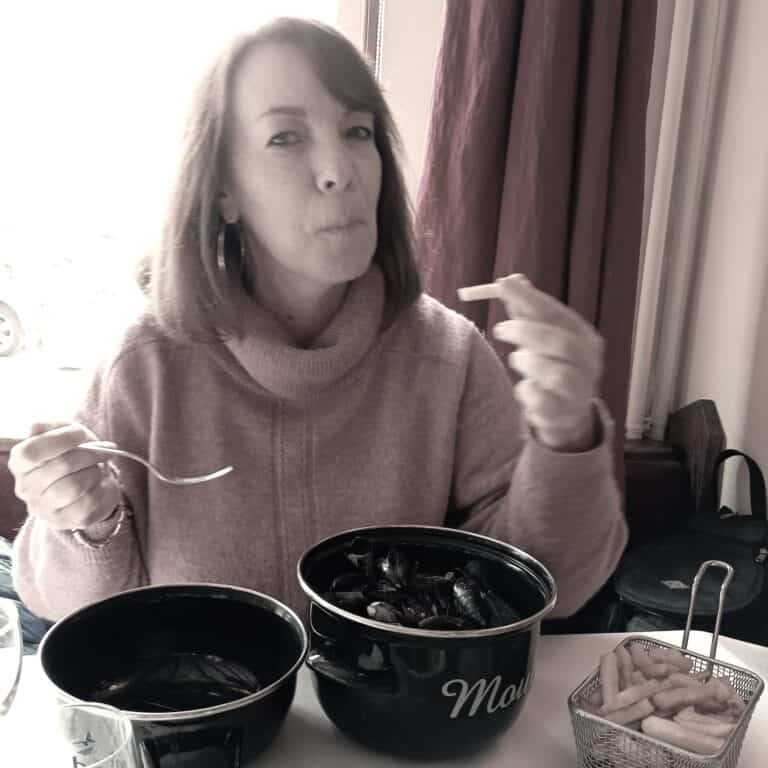

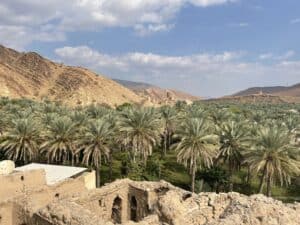

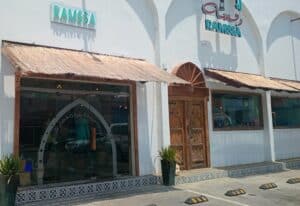


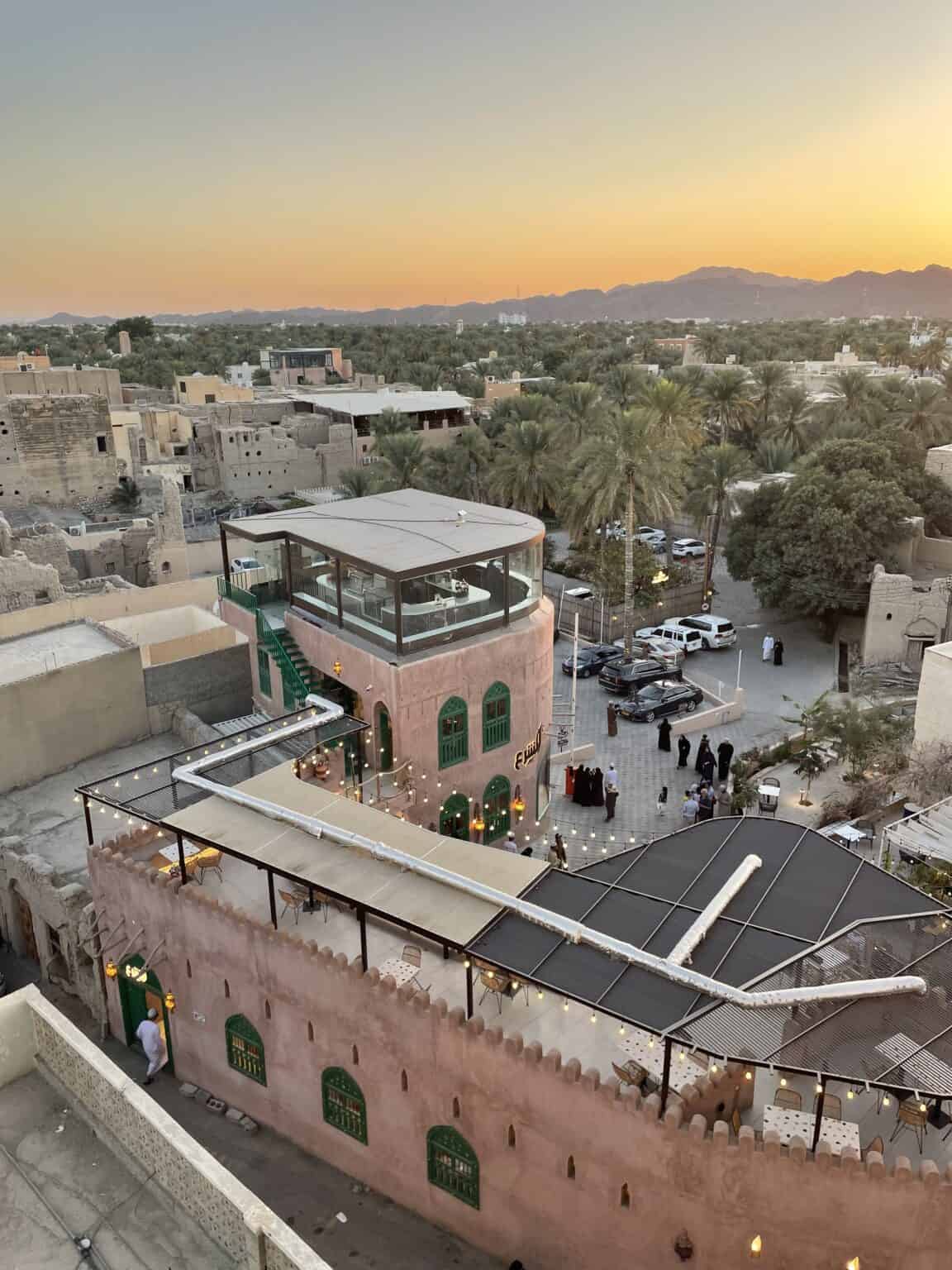

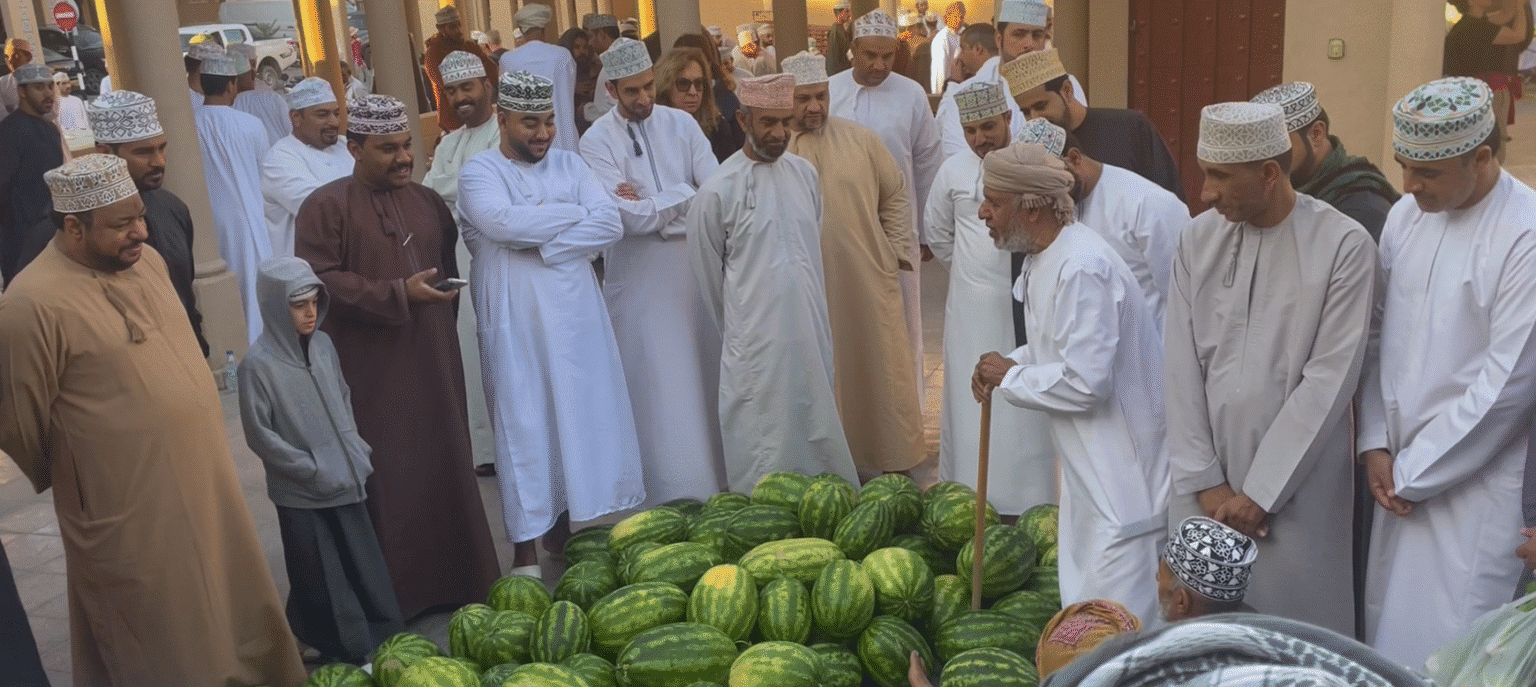
10 responses
Hello
Is there an app or a map showing the speed radars of Oman?
Estarei em Omã no final de setembro e suas informações me ajudaram muito na escolha do Hotel!
Obrigada Christine
Merci Christine pour ce temps passé à nous décrire comment se sentir comme chez toi, chez nous !
J’ ai voyagé encore !
À bientôt ✈️
C’est un plaisir, Anne. Vraiment!
Wow❤️
Thanks. If you need more information about accommodation in Muscat or other aspects of travelling in Oman, don’t hesitate to ask.
Hi Christine, thank you so much for the restaurant recommendation. I loved the food, the atmosphere and the place in general. I also talked to Khaled, the supervisor. He says hi. Thank you again. Tomorrow is my last day in Muscat. Any last minute must- see places?
Saliha from Algeria
Hello Saliha, Glad to hear you enjoyed the restaurant. In terms of Muscat, there are many options but some must-sees are Muttrah (the Corniche, Souq and Fort), Al Qurum (Shatti Al Qurum with its beach, the Opera building), and Old Muscat (the Royal Palace and gardens around, the Bait Al Zubair museum). I hope you get to see some of these. Have a great day!